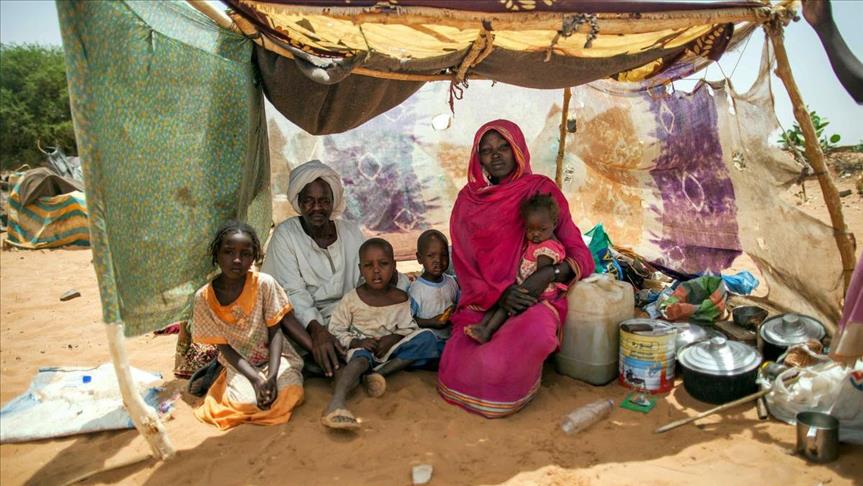
Juba
by Parach Mach
JUBA, South Sudan
Moses Lumataa blares music in his barber shop, as he waits for customers to arrive.
His barber shop, situated in a busy area of Juba along the Airport Road, opposite the ministries’ complex, is usually thronged with clients seeking haircuts.
“But not any more,” Lumataa told Anadolu Agency in an interview on Wednesday.
Residents of Juba, just like others around South Sudan, are adapting to the shock of the country’s currency devaluation by 84 percent against the dollar on Dec. 15.
Prices of commodities, almost all of which are imported, skyrocketed following the devaluation, setting in place hyperinflation of 109.9 percent, the country’s national bureau of statistics said in a report on Jan. 9.
“I also tried to increase prices, but the customers are complaining,” Lumataa said.
“Last week I was shaving at SSP20 ($1.08 at the official rate) per person, but now I have raised it to SSP35 ($1.89), and this has reduced the number of my customers to less than ten every day,” he said.
He said managing business “in this situation is very difficult now because equipment is now very expensive.”
“I used to buy razor blades at SSP450 ($24.32), but right now they cost SSP1800 ($97.29) after the importer shut down his wholesale shop last month,” he added.
“Wholesalers go to the parallel market to purchase dollars, with which they import commodities, and every day the rates are changing, forcing them to increase wholesale prices, the costs of which are passed on to us," Lumataa said.
Foreign currency has become scarce in South Sudan, after production of its sole export commodity, crude oil, was reduced by two-thirds to 160, 000 barrels per day. The fall of oil prices on the global market has made matters worse.
Several major businesses are closing down, including the country’s first beverage company, the Juba-based South Sudan Beverages, a subsidiary of the U.K.-based giant SABmiller. The company announced on Jan.15 that it would stop production by mid-March after the devaluation caused it to suffer important losses.
Juba-based Golden Car Imports, a national company which imports cars from Japan, is struggling, CEO Angelo Kumbanyeki, told Anadolu Agency in an interview on Tuesday.
“I am seriously considering shutting down as what I make is hardly enough to sustain the business,” Kumbanyeki, who has been in the trade for the last four years, told Anadolu Agency.
Kumbanyeki said that before the economy worsened, he would allow customers to take cars before completing payment.
“But not anymore,” he insisted.
In an attempt to ease pressure on people’s pockets, the government has started adjusting salaries, beginning with its lower ranking employees, Information Minister Michael Makuei told Anadolu Agency on Wednesday.
Unclassified staff, junior officials and NCOs (Non Commissioned Officers) in the regular armed forces who earn SSP1000 ($54) per month and below will have their salaries “increased by 300 percent with effect from February 2016,” Makuei said.
“We have financial problems so the most affected are to benefit first from this,” he added.
But businessmen are in despair.
“Never before have I been reduced to this level. Many vehicles in my yard were bought on installments, but the clients are not completing the full payment. I have no choice but to hold the cars back or I will lose my money,” Kumbanyeki said.






